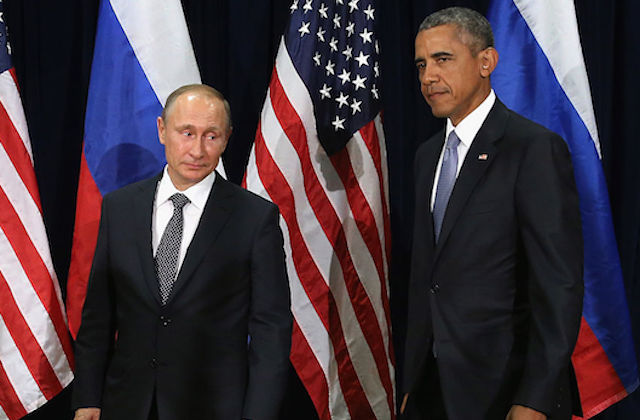Neither the Soviet Union nor its successor, the contemporary Russian Federation, created racism in America. But an October 30 story from NPR breaks down how Russian and Soviet intelligence agencies have long exploited our institutional racism to undermine both Black activists and the government that targets them.
The article traces these efforts back to at least the Civil Rights Movement, when FBI director J. Edgar Hoover attacked Martin Luther King Jr. by tapping his phones and sending at least one letter encouraging him to commit suicide. NPR references a passage from "The Sword and the Shield," a 1999 book about the Soviet KGB intelligence agency’s history, saying that the KGB enlisted U.S. Communist Party members to push King toward using more inflammatory rhetoric. When King wouldn’t abandon his Christian theology-based beliefs, the KGB placed articles in African-American newspapers alleging that King took U.S. government subsidies "to tame the Civil Rights Movement." "King was probably the only prominent American to be the target of active measures by both the FBI and the KGB," the book reads.
NPR cites other examples from "The Sword and the Shield" and "Spycraft," a 2009 book on CIA surveillance campaigns. One instance from 1971 involved the KGB forging letters from the Zionist Jewish Defense League to Black liberation group heads that referred to Black people as "mongrels" to undermine solidarity between Black and Jewish activists. And ahead of the 1984 Los Angeles Summer Olympics, the KGB distributed fake Ku Klux Klan statements promising violence against "Black moving targets" to African and Asian countries.
This interference continued into the 2016 election when hackers, subsidized by the Russian government, bought at least $100,000 worth of social media ads and flooded platforms with inflammatory imagery and stances. The New York Times reported earlier this month that ads traced back to Russian entities featured a mix of messages, ranging from anti-immigrant vitriol to solidarity with Freddie Gray—all of which The Times says had the effect of stoking the fears of White users.
NPR notes that these campaigns wouldn’t succeed if law enforcement agencies didn’t already disproportionately target Black communities:
This deep distrust underscores what intelligence officers warned about active measures during the Cold War and continue to see now: Foreign governments don’t need to invent controversy in Western democracies. It’s already there. What they want is to make the disputes angrier and the debate louder.
NPR published the article one day before Facebook, Google and Twitter representatives testified before U.S. House and Senate intelligence committees about alleged Russian social media influence during the 2016 election. The hearings continue today (November 1). The New York Times notes that both days’ proceedings involved partisan debates. Many congressional Democrats believe Russian interference contributed to Donald Trump’s presidential win, while their Republican counterparts are focusing on the broader impact.
Read the full article at npr.org.
